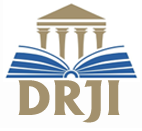SUMBER-SUMBER ILMU PENGETAHUAN DALAM MANAJEMEN PENDIDIKAN ISLAM
Abstract
Success in education when graduating superior and competent human resources in various fields. However, to achieve success in education must struggle in the science of management education. Islamic education management science is knowledge about governance of Islamic educational institutions that are obtained through scientific processes and arranged systematically as a truth that is recognized by many people. As subjects in the practice of Islamic education management, each individual must understand the sources of his knowledge. In the level of management of Islamic education there are various sources to gain knowledge, namely empiricism, rationalism, intuition, revelation. According to the empiricism, humans gain knowledge through their life experiences. Medium rationalism is a flow that considers that reason is the most important medium for gaining knowledge. Intuition is a flow that considers the ability to understand the science of management education without going through rational reasoning but through whispers of hearts and gestures. Revelation is called the pure source of all knowledge that comes from God, revelation contributes to the building of knowledge that is not affordable by rational and empirical forces. The scientific method is a procedure in gaining knowledge. Broadly speaking the steps of the scientific method are the formulation of the problem, the preparation of the framework of thinking in the submission of hypotheses, the formulation of hypotheses, testing hypotheses, and drawing conclusions.
Full Text:
PDFReferences
Abdul Hakim, Atang dan Ahmad Saebani, Beni. Filsafat Ilmu : Dari Metodologi Sampai Teofilosofi. Bandung : Pustaka setia, 2016.
Abdullah, Amin. Studi Agama: Normativitas atau Historisitas?.Yogyakarta: Pustaka Pelajar, 2002.
Ahmad, Firdaus. Filsafat Ilmu: Posbakum antara teori dan praktek. Pontianak: IAIN Pontianak Press, 2014.
Bakhtiar, Amsal. Filsafat Ilmu. Jakarta: Raja Grafindo Persada, 2014.
Departemen Agama Republik Indonesia. Al-Qur'an dan Terjemahannya. Jakarta: CV Penerbit J-ART, 2005.
Gie, The Liang. Pengantar Filsafat Ilmu cetakan ke 5. Yogyakarta: Penerbit Libery, 2000.
Hadiwijoyo, Harun. Sari Sejarah Filsafat Barat I. Yogyakarta: Penerbit Kanisius, 2012.
K. Bertens. Ringkasan Sejarah filsafat. Yogyakarta: Kanisius, 2011.
Kosim, Mohammad. ILMU PENGETAHUAN DALAM ISLAM (Perspektif Filosofis-Historis), Jurnal Tadrîs. Volume 3. Nomor 2. 2008.
Oxford Advanced Learner's Dictionary, Oxford University press. twelfth edition, 2011.
Rusuli, Izzatur dan Fuady M. Daud, Zakiul. Ilmu Pengetahuan Dari John Locke Ke Al-Attas. Jurnal Pencerahan. Volume 9, Nomor 1, Maret 2015.
S.Sumantri, Jujun. Filsafat Ilmu Sebuah Pengantar Populer, Cetakan 26. Jakarta: Pustaka Sinar Harapan, 2017.
Tafsir, Ahmad. Filsafat Umum: Akal dan Hati Sejak Tales Sampai Capra. Bandung: Rosdakarya, 2016.
_________. Filsafat Ilmu: Mengurai Ontology, Epistimologi, dan Aksiologi Pengetahuan. Bandung: Rosdakarya 2015.
Warson Munawwir, Ahmad. Al-Munawwir; Kamus Arab-Indonesia. Yogyakarta: Unit Pengadaan Buku-Buku Ilmiah Keagamaan Pondok Pesantren al-Munawwir, 1984.
DOI: http://dx.doi.org/10.30821/hijri.v9i1.7412
Refbacks
- There are currently no refbacks.
Copyright (c) 2020 Hijri
Organizational Collaboration:
Hijri: Jurnal Manajemen Kependidikan dan Keislamanhas been indexed by:
Jurnal Hijri by Program Studi Manajemen Pendidikan Islam FITK Universitas Islam Negeri Sumatera Utara is licensed under a Creative Commons Attribution-NonCommercial-ShareAlike 4.0 International License.










2.png)


